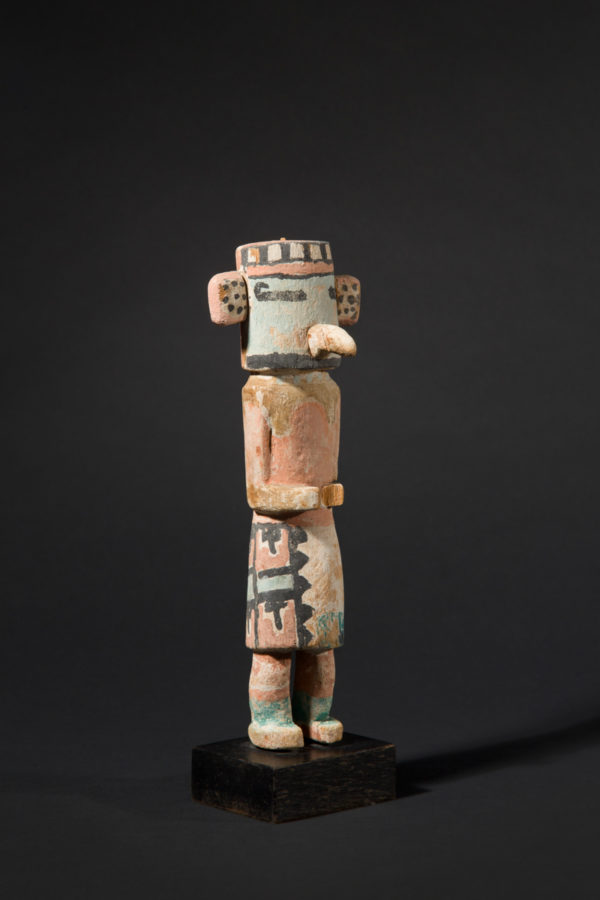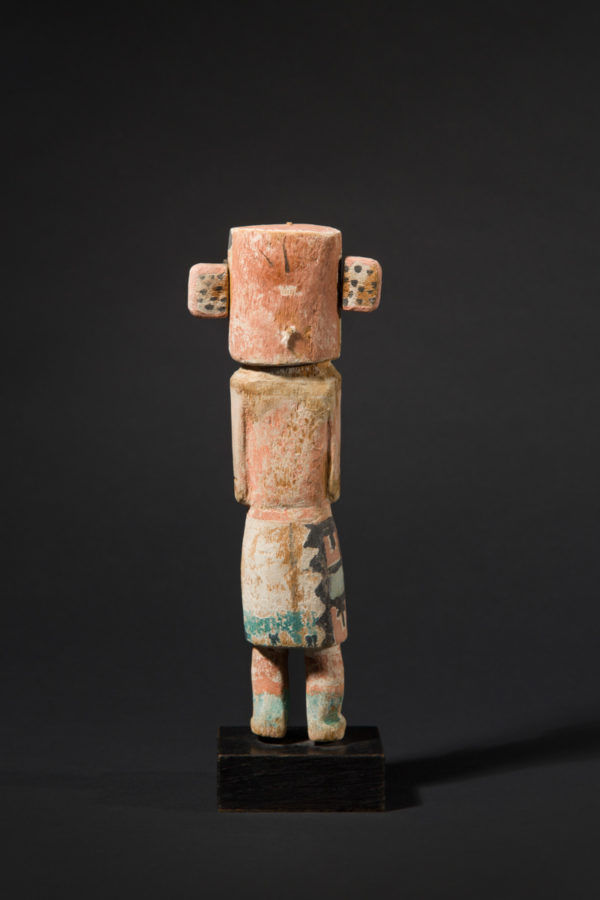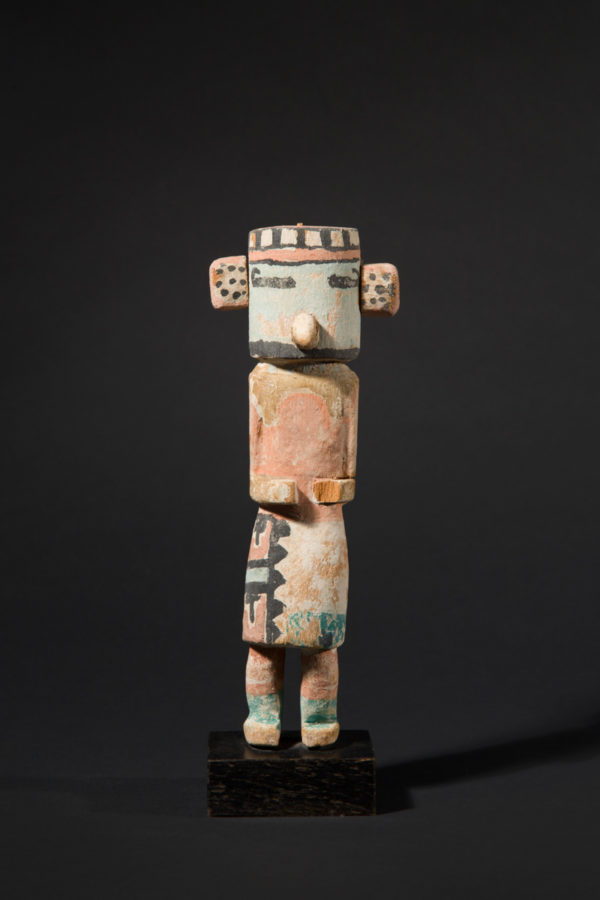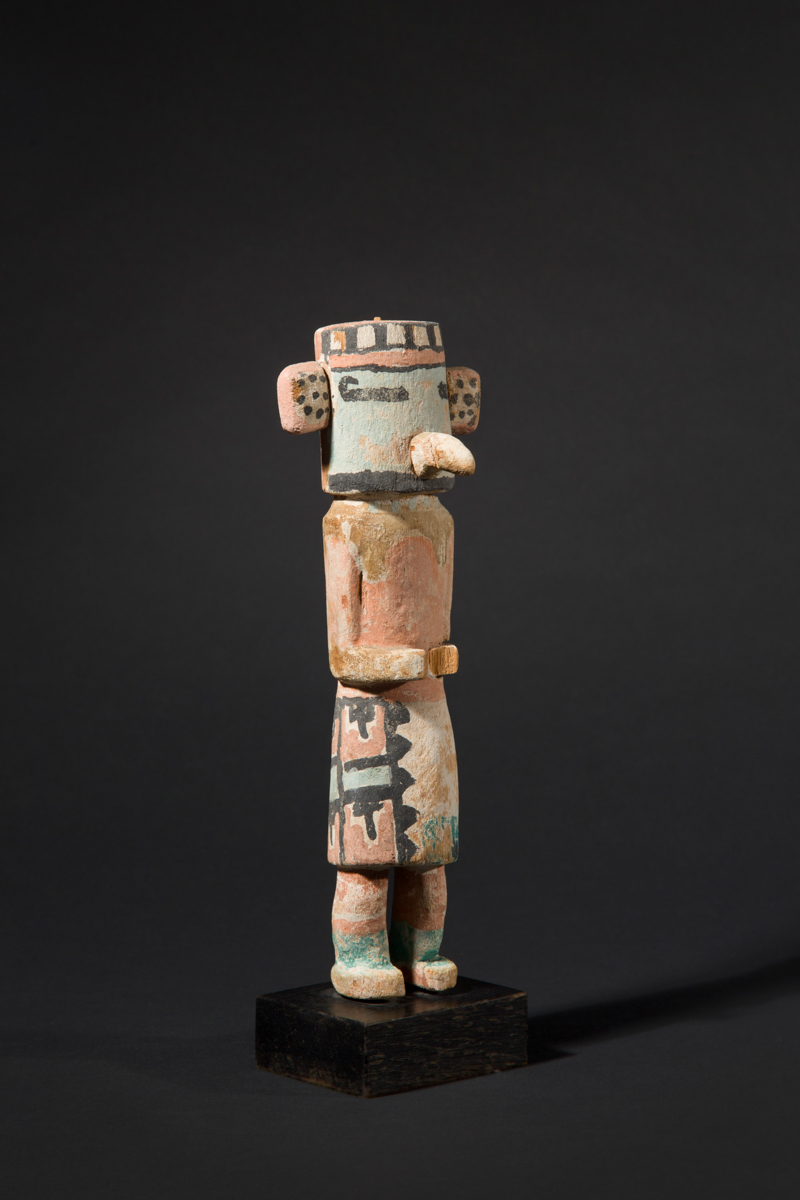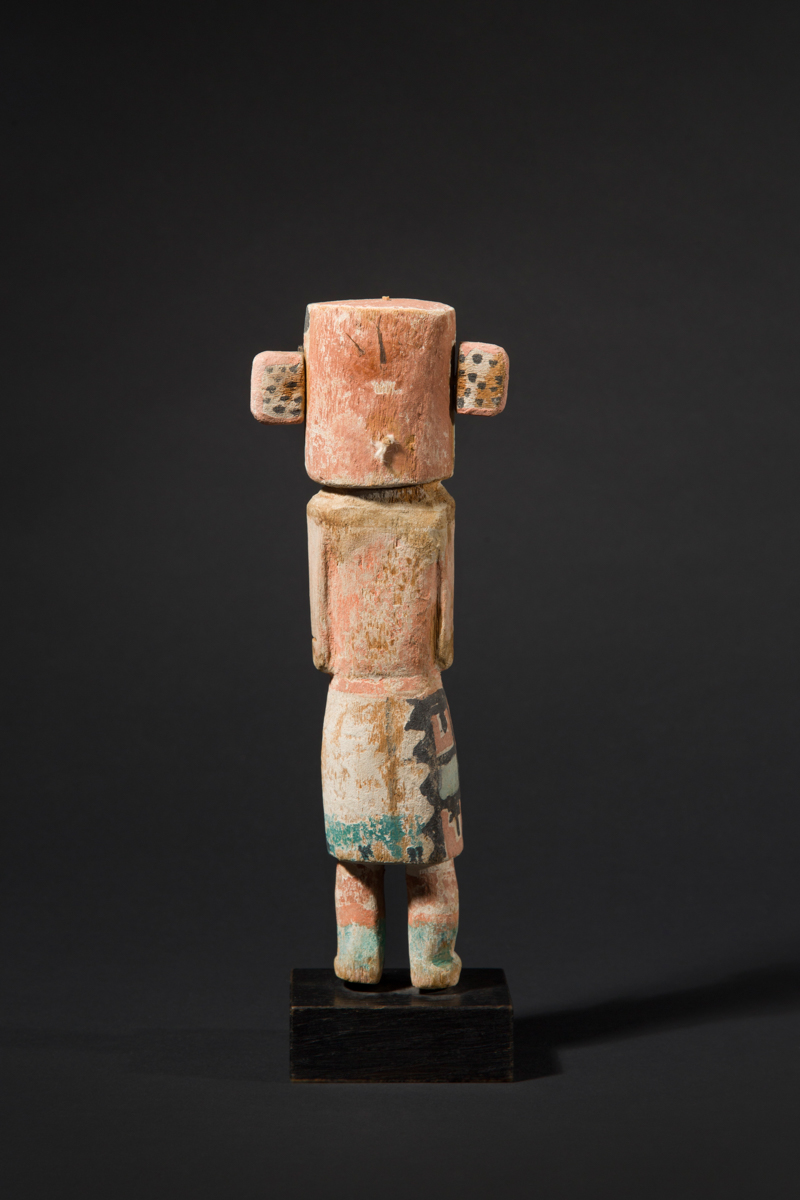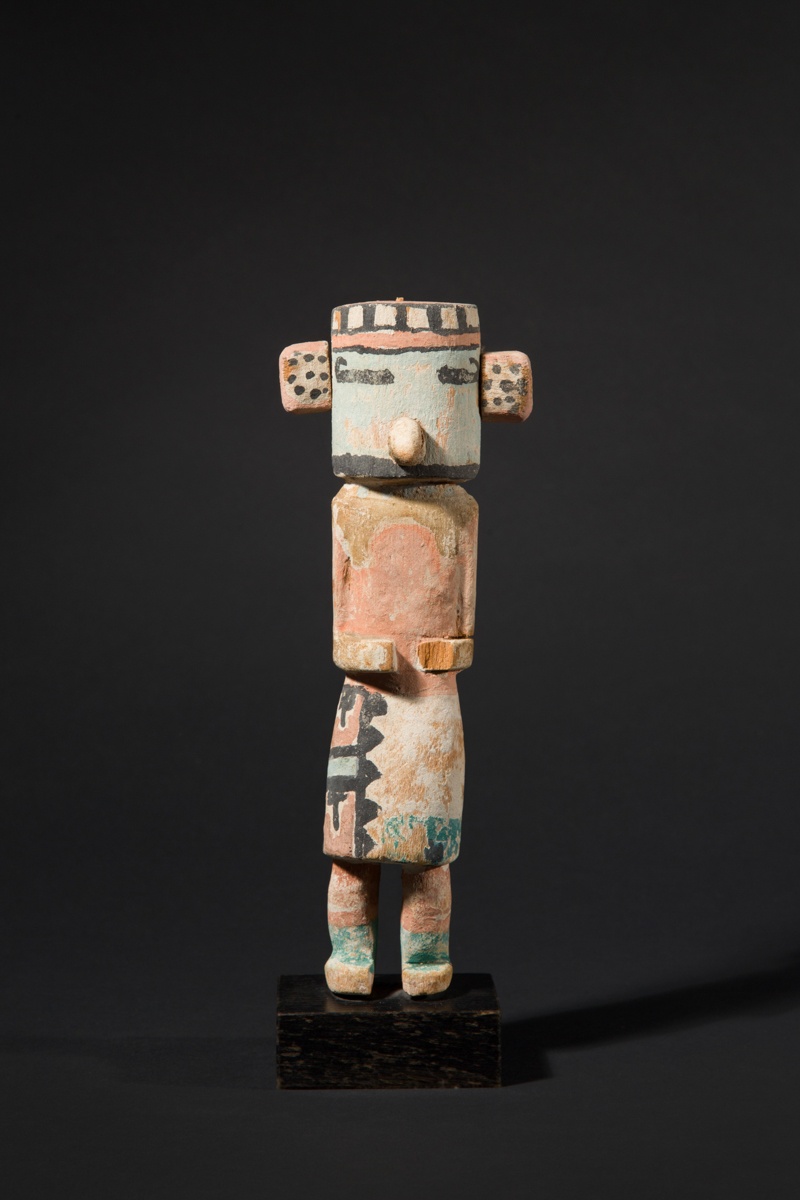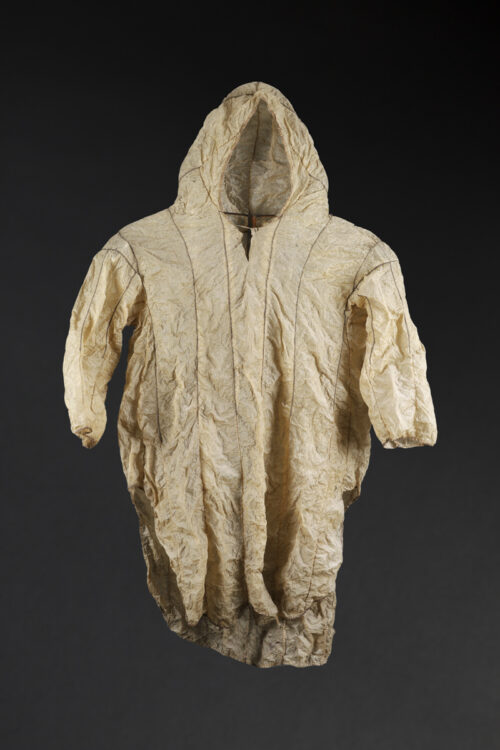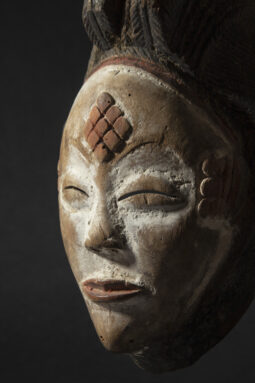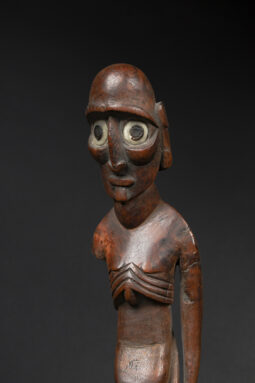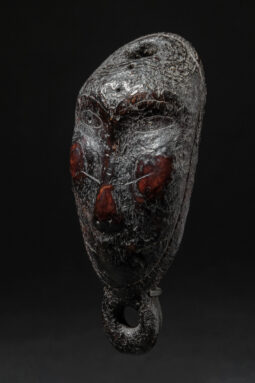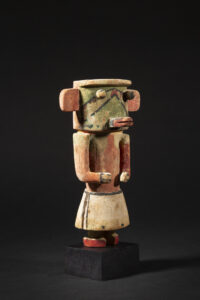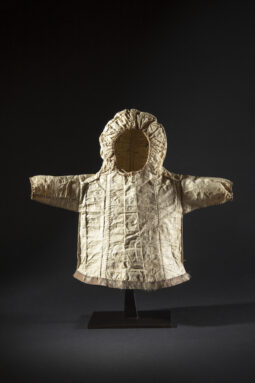North America | Arizona
Katsina doll
Arizona
Mashanta Katsina – Flower Katsina
Hopi
Circa 1910
Carved wood (cottonwood), pigments
Height: 20 cm – 7 ¾ in.
Provenance
Ex collection Allan Stone, USA
Ex Sotheby’s New York, May 2014, lot 121
Ex private collection, UK
Mashanta Katsina doll 20 cm / Galerie Flak
On request
Katsina dolls (or kachina) represent spirits or gods from the pantheon of the Pueblo peoples in the American Southwest. Given to children, Katsina dolls constituted a pedagogical tool allowing them to familiarize themselves with the spiritual world and perpetuating knowledge of the founding myths on which their society was based.
Alexander M. Stephen (1850-1894), who lived among the Hopi for several years, published early accounts of daily and ceremonial life in the region in a two-volume work titled Hopi Journal of Alexander M. Stephen (Columbia University Press, 1936). In 1891, he witnessed Mashanta Katsina dances, which were held as prayers for rain during the planting season. He notes: "At certain measures Masha’nta and maid (Hanomana) lift the left hand with yellow corn to the forehead, at the same time turning to the left as if looking in the distance, then dropping the left hand, at the same time turning to the right to the former position. During this turn they do not lift the feet from the ground, but with springy motion of knees and hips keep time to the song measure. The movement completed, which only occupies a couple of minutes, they resume the same step as the others, springy movement on left foot, twice, at same time lifting the right foot as high as the knee, then dropping it, they make two springy movements with the right foot, at the same time lifting the left foot about as high as the knee."
Alexander M. Stephen (1850-1894), who lived among the Hopi for several years, published early accounts of daily and ceremonial life in the region in a two-volume work titled Hopi Journal of Alexander M. Stephen (Columbia University Press, 1936). In 1891, he witnessed Mashanta Katsina dances, which were held as prayers for rain during the planting season. He notes: "At certain measures Masha’nta and maid (Hanomana) lift the left hand with yellow corn to the forehead, at the same time turning to the left as if looking in the distance, then dropping the left hand, at the same time turning to the right to the former position. During this turn they do not lift the feet from the ground, but with springy motion of knees and hips keep time to the song measure. The movement completed, which only occupies a couple of minutes, they resume the same step as the others, springy movement on left foot, twice, at same time lifting the right foot as high as the knee, then dropping it, they make two springy movements with the right foot, at the same time lifting the left foot about as high as the knee."
Explore the entire collection
